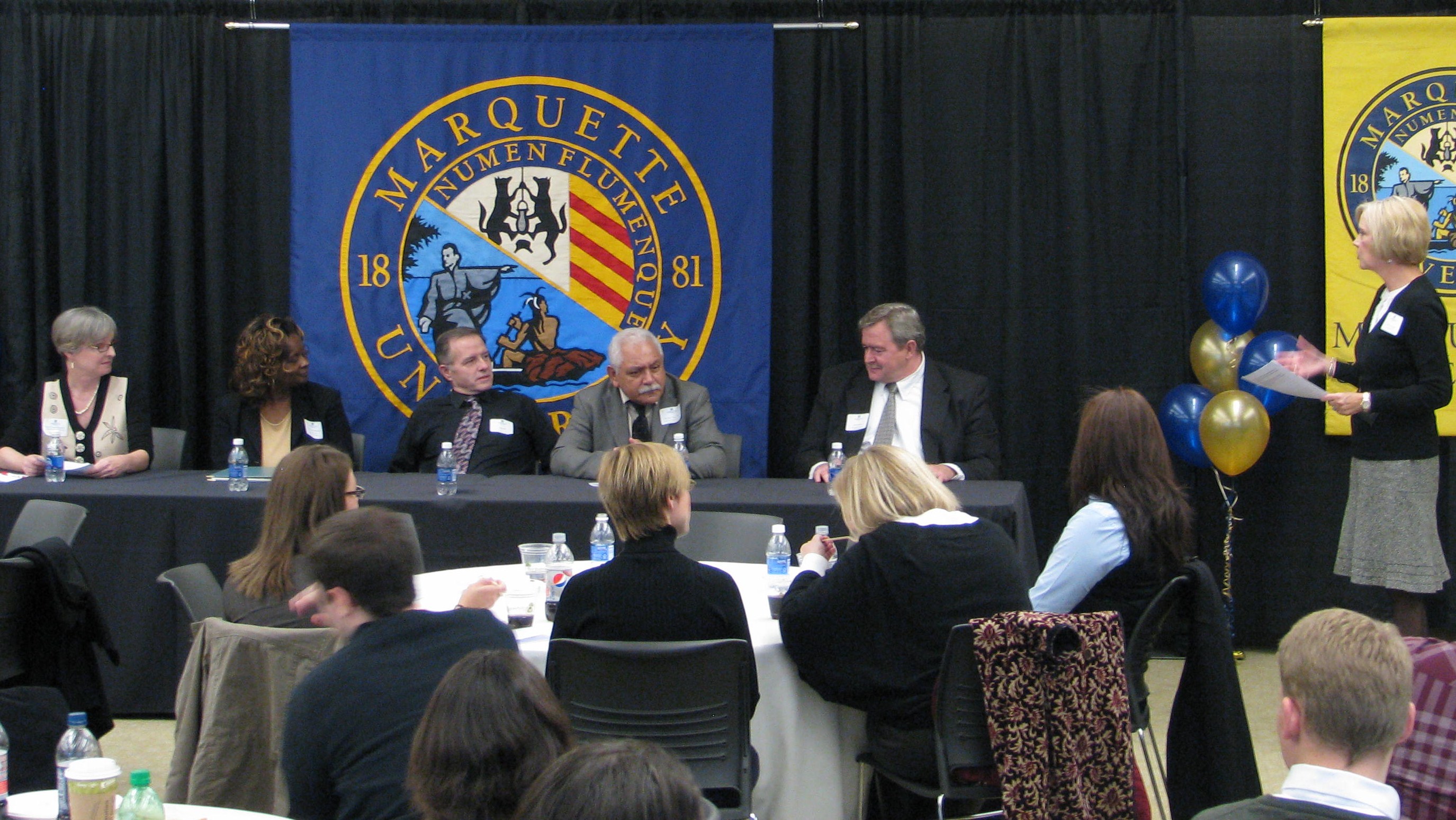Pro Bono: A Lot to Celebrate
 Last week, as part of the American Bar Association’s coordinated effort to showcase the great difference pro bono makes, we hosted our third annual Pro Bono Celebration. This gave us opportunity to highlight some of our community partners. We celebrated with balloons and cake in the conference center and heard from Beth Cordes Thompson, Director of Wisconsin English Language Partners of Wisconsin and a recent beneficiary of the Marquette Legal Initiative for Nonprofit Corporations’ services; Gerri Sheets-Howard, Director of the House of Peace where the Marquette Volunteer Legal Clinic (MVLC) is in its tenth year of operation; Jim Duff, Director of Milwaukee County Veterans’ Service Office where the MVLC has hosted a clinic since 2009; Dr. Luis “Tony” Baez, Director of the Council for Spanish Speakers where the MVLC has operated a clinic since 2008; and John Barrett, Milwaukee County Clerk of Courts, where our clinic has run since 2009. These speakers are pictured from left to right in the photo accompanying this post. I heard from multiple attendees that they were refueled after hearing about the reach of the legal services our law students and a dedicated cadre of volunteer attorneys provide.
Last week, as part of the American Bar Association’s coordinated effort to showcase the great difference pro bono makes, we hosted our third annual Pro Bono Celebration. This gave us opportunity to highlight some of our community partners. We celebrated with balloons and cake in the conference center and heard from Beth Cordes Thompson, Director of Wisconsin English Language Partners of Wisconsin and a recent beneficiary of the Marquette Legal Initiative for Nonprofit Corporations’ services; Gerri Sheets-Howard, Director of the House of Peace where the Marquette Volunteer Legal Clinic (MVLC) is in its tenth year of operation; Jim Duff, Director of Milwaukee County Veterans’ Service Office where the MVLC has hosted a clinic since 2009; Dr. Luis “Tony” Baez, Director of the Council for Spanish Speakers where the MVLC has operated a clinic since 2008; and John Barrett, Milwaukee County Clerk of Courts, where our clinic has run since 2009. These speakers are pictured from left to right in the photo accompanying this post. I heard from multiple attendees that they were refueled after hearing about the reach of the legal services our law students and a dedicated cadre of volunteer attorneys provide.
